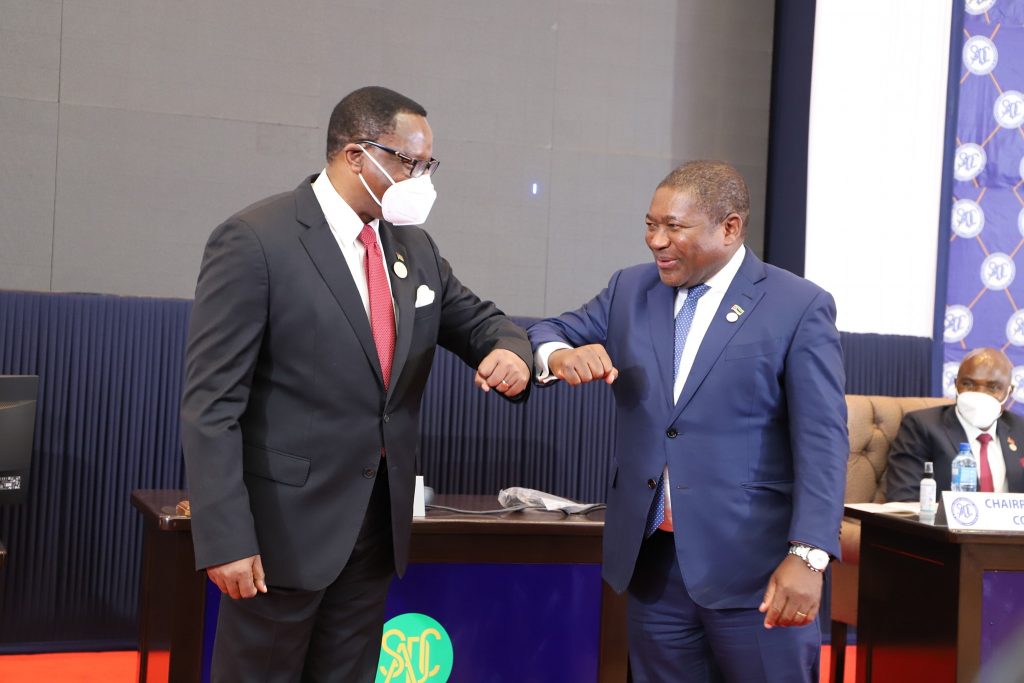ACB halts K48bn Mota-Engil deal
The Anti-Corruption Bureau (ACB) has stopped Ministry of Transport and Public Works from dealing with the contract for designing, upgrading and rehabilitation of the railway section between Marka and Bangula in Nsanje.
A statement ACB issued yesterday signed by the organisation’s spokesperson Egritta Ndala said the stop order follows complaints they received regarding this procurement.

The development comes barely a week after Ministry of Transport and Public Works published a notification for intention to award Mota-Engil a K48 billion contract to reconstruct the 72-kilometre railway line.
Mota-Engil emerged the successful bidder with the lowest price (K48 244 861 524.98) against two others–China Railway (K59 906 673 465.11) and China Civil Engineering (K79 766 540 032.76).
According to the complaint, which we have seen, the evaluation team for this tender was allegedly receiving verbal instructions from unnamed politicians to award the contract to Mota Engil.
It further alleged the approval from the Public Procurement and Disposal of Assets Authority (PPDA) was also influenced with what was referred to as an “invincible hand”.
On another note, the complaint questions the price Mota-Engil quoted as not realistic and that some items may have been deliberately omitted but would be included later once the contract is awarded.
The complaint further details some of the projects which the successful bidder allegedly bid lowly but ended up charging more in the name of variations.
According to our findings, ACB vetted the award of this contract in January this year under a letter reference number ACB/CPD/0521 signed by senior corruption prevention officer George Makande. In the letter, however, the ACB indicated that it reserved the right to investigate should there be information pointing to the fact that procurement procedures were not followed.
Delays Hit the Railway Project
The reconstruction of the 72-kilometre stretch from Marka to Bangula follows discussions between President Chakwera and his Mozambican counterpart Felipe Nyusi in October last year, to revamp the Sena line which connects Malawi to the crucial port of Beira—a move which will reduce the cost of trade for Malawi.
We have established that the (PPDA), in which the SPC sits as a board member, approved the award of the contract to Mota Engil on March 31, and then on June 16, 2021, in a confidential memo, President Lazarus Chakwera gave a go-ahead to the Ministry of Transport and Public Works to proceed with the awarding of the contract.
But another communication between Ministry of Transport and Public Works and the office of the Secretary to the President and Cabinet (SPC), indicated in July the SPC stopped the process for reasons we are yet to understand as he has not responded to our questionnaire submitted to him almost two months ago.
In a memo dated June 8, 2021 reference number C/ADM/1/2 the Ministry of Transport notified the President that it had settled for Mota Engil as a contractor for the first phase of the 201-kilometre railway project which starts from Marka to Limbe and the President gave approval.
Reads the President’s response dated June 16, 2021: “This is noted with thanks. This portion of the railway road needs to be done with speed”.
A confidential memo dated July 19, 2021 from Ministry of Transport to the SPC corroborates what sources told us that there was indeed a stop order.
“As directed today, I am putting on hold the process to award Mota-Engil to rehabilitate and upgrade a 72-kilometre rail line from Marka to Bangula. I am attaching the government notice we wanted to put in the newspaper today to finalise the process as well as the criteria used by our internal Procurement and Disposal Committee for evaluation as you requested.
“I am also attaching a memo from His Excellency the State President Dr. Lazarus MacCathy Chakwera on the issue just in case you did not see it. I will be waiting for your further guidance and directives,” reads the memo from Patrick Zimpita to SPC.
President Chakwera has expressed commitment to revamp railway transport which he believes is a catalyst for economic growth. According to the project feasibility study report released in 2015, Beira and Nacala handle over 90 percent of Malawi’s trade.
The Sena line was closed in the 1980s following civil war in Mozambique but the railway line between Bangula and Limbe in Malawi continued to operate, serving mainly the sugar sector, until it was damaged by floods at Chiromo in 1996. Since then, only the section between Makhanga and Limbe has been operational.





